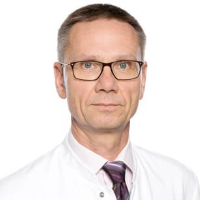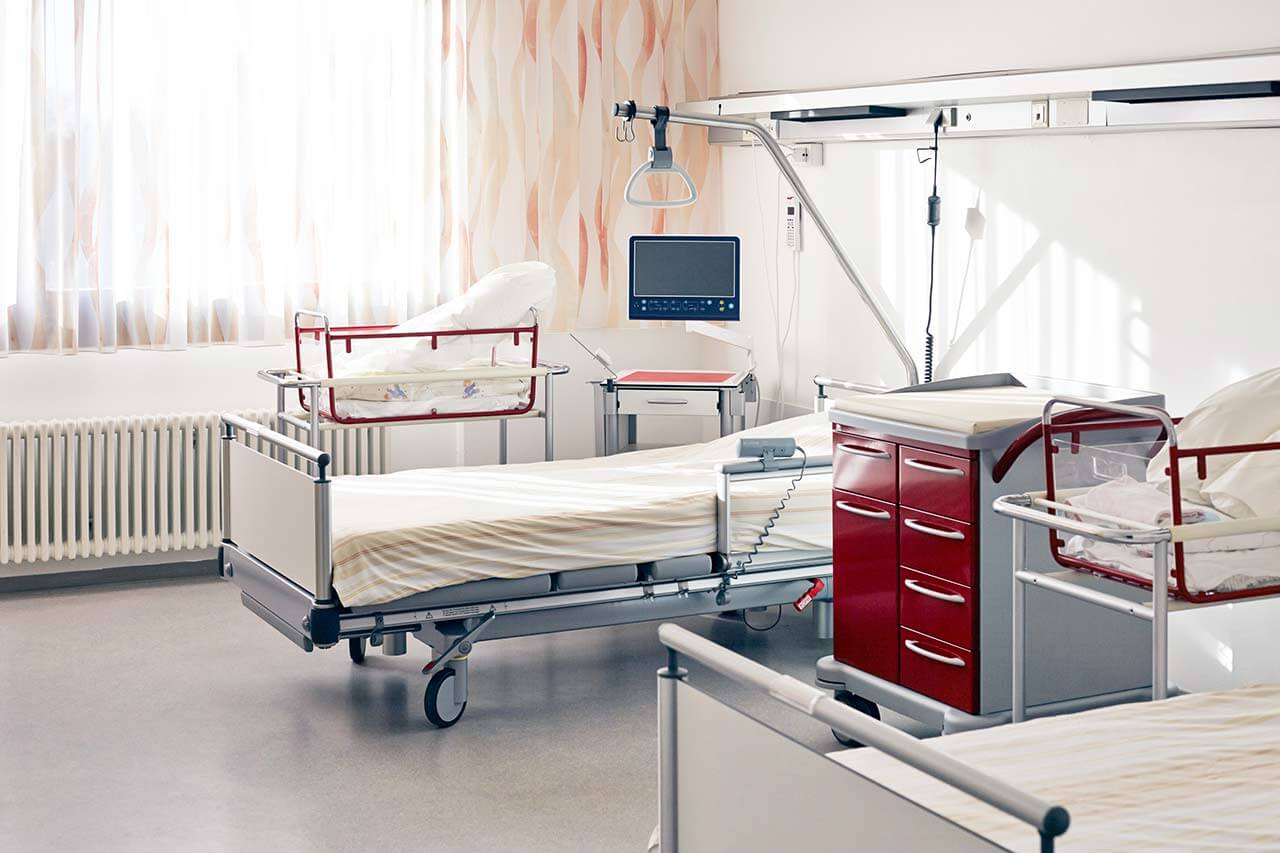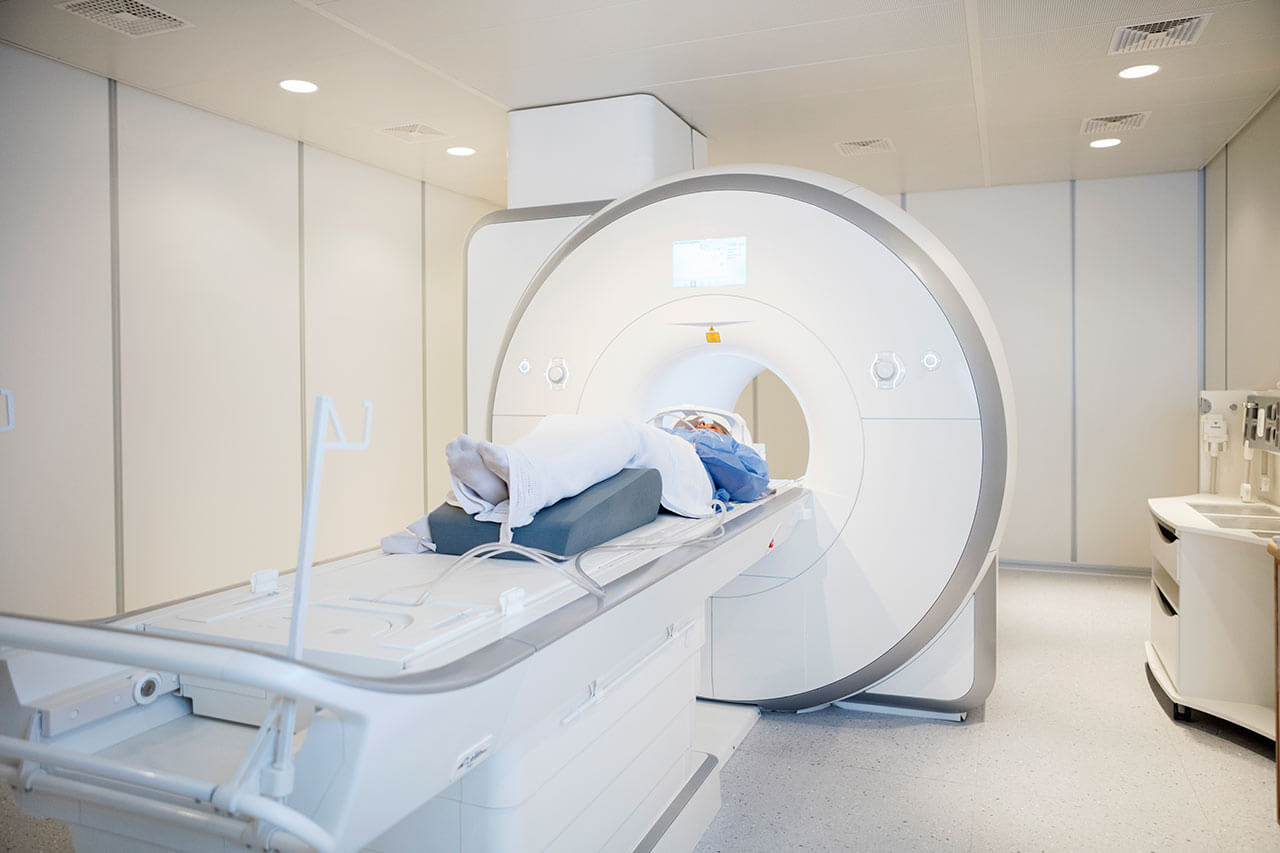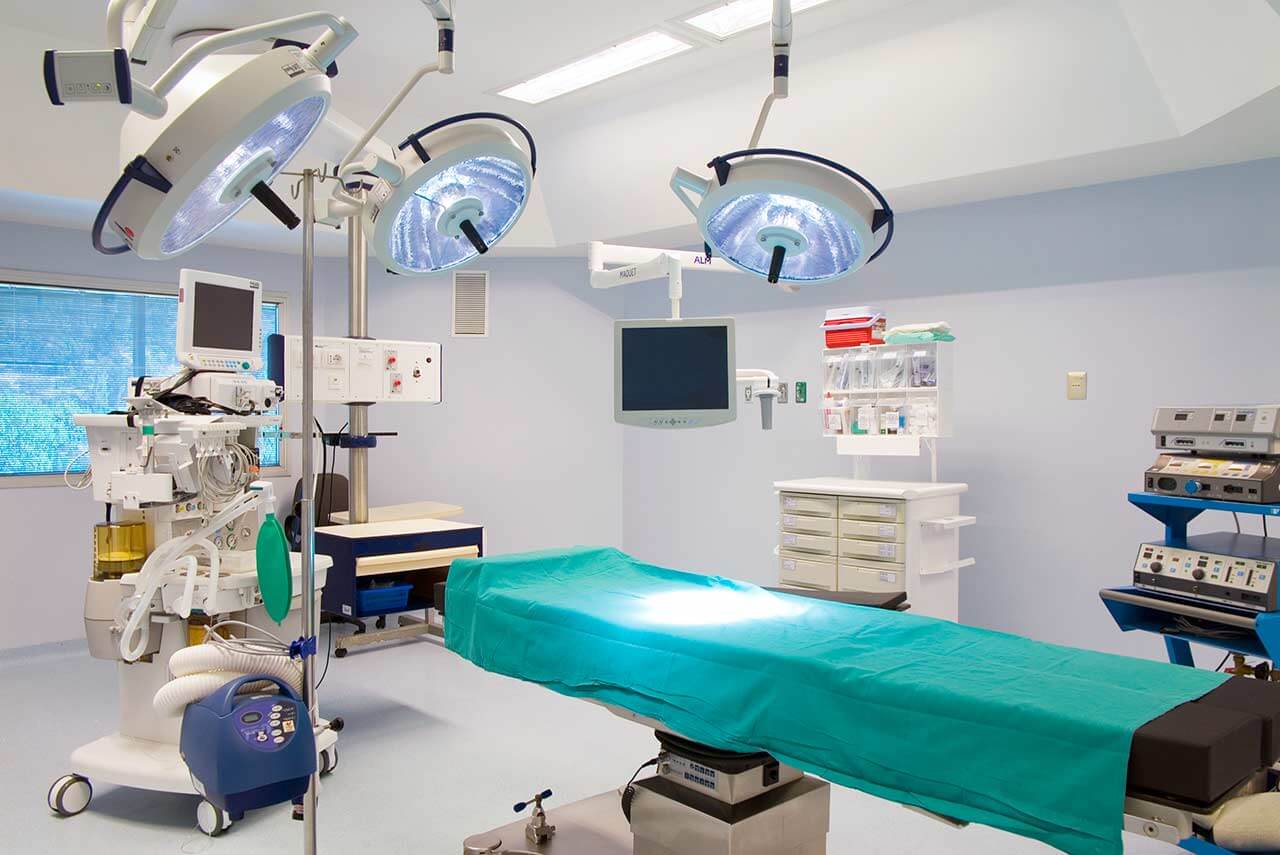
About the Department of Adult and Pediatric Urology, Andrology at Hospital Cologne-Holweide
The Department of Adult and Pediatric Urology, Andrology at the Hospital Cologne-Holweide provides the full range of services for the diagnostics and treatment of urologic diseases. The medical facility specializes in conservative and surgical treatment of diseases of the kidneys, ureters, bladder, urethra, and male reproductive system. An important area of competence of the department's team of urologists is the treatment of kidney cancer, bladder cancer, prostate cancer, and testicular cancer. The department has two advanced operating rooms: one is adapted for complex open surgery, and the other has equipment for transurethral and endoscopic interventions. Many minor surgical procedures are performed on an outpatient basis without a mandatory hospital stay. Patients are also offered the services of a qualified team of andrologists who are responsible for providing medical care to men suffering from infertility, erectile dysfunction, hypogonadism, and other pathologies. The department's doctors are experienced specialists who always strive to find an optimal solution to health problems and provide patients with high-quality treatment. The department is headed by PD Dr. med. Joachim Leissner.
Prostate cancer treatment is one of the main areas of specialization for the department's urologists. Prostate cancer is a widely prevalent disease among men. The danger of this pathology lies in the fact that it is often asymptomatic in the early stages. By the time the tumor becomes symptomatic, it often spreads beyond the prostate capsule, significantly increasing the risk of lymph node involvement and metastasis. The medical team has an excellent diagnostic base for comprehensive diagnostics for suspected prostate cancer, the results of which largely determine the effectiveness of the upcoming treatment. The gold standard for treating localized prostate cancer is a radical prostatectomy, which involves total removal of the malignant tumor along with the affected organ. The operation is performed using minimally invasive laparoscopic techniques. Depending on the particular clinical case, surgical treatment may be supplemented with conservative therapies such as chemotherapy, radiation therapy (external beam radiation therapy or brachytherapy), hormone therapy, targeted therapy, immunotherapy, etc.
The department's medical team also regularly admits patients with kidney cancer. At the diagnostic stage, kidney ultrasound and laboratory blood and urine tests are performed if cancer is suspected. X-ray diagnostics, CT, MRI, PET-CT, and a kidney biopsy may also be required to clarify the diagnosis. If the diagnosis is confirmed, the specialists develop an individual treatment regimen, taking into account the stage of the disease, the patient's general health condition, their age, and other factors. The basis of kidney cancer treatment is almost always surgical removal of the malignant neoplasm. In the advanced stages of cancer, total removal of the affected kidney, known as a nephrectomy, may be required. Such surgical interventions are performed in the department using minimally invasive techniques. During treatment, the specialists also use conservative methods, including immunotherapy and targeted therapy, while chemotherapy and radiation therapy are rarely used.
The department's urologists have excellent professional skills in the treatment of kidney stone disease. This pathology involves the formation of calculi in the kidneys, ureters, and/or bladder. The pathological process usually leads to severe symptoms such as renal colic, painful urination, increased body temperature, nausea, vomiting, and increased fatigue. The department's doctors recommend patients not delay treatment because kidney stone disease may provoke severe complications, including the development of upper urinary tract infections, kidney failure, and sepsis. The department's therapeutic options in this area include extracorporeal shockwave lithotripsy (non-contact stone crushing) and endoscopic stone removal interventions. Whenever possible, the department's specialists prefer the first treatment option, but it is an endoscopic intervention that can help achieve good results when dealing with large stones.
The department's andrologists conduct comprehensive diagnostics and treatment of diseases of the male reproductive system. The doctors in this specialization focus on patients with infertility, erectile dysfunction, and hypogonadism. The main method of confirming male infertility is a spermogram, which assesses the quantity and quality of sperm cells as well as their motility. In many cases, the specialists only resort to the treatment of urologic pathology that causes infertility. The last-line treatment is intracytoplasmic sperm injection (ICSI), which refers to assisted reproductive technologies. As for erectile dysfunction, the most common treatment is a combination of psychotherapy and drug therapy. In addition, erectile dysfunction can be a complication of other diseases, such as arterial hypertension or diabetes mellitus. In such cases, the problem can be eliminated after compensation for the underlying disease.
The department's main clinical activities include:
- Urology
- Diagnostics and treatment of urologic cancers
- Prostate cancer
- Kidney cancer
- Bladder cancer
- Testicular cancer
- Diagnostics and treatment of benign urologic diseases
- Benign prostatic hyperplasia
- Prostatitis
- Kidney stone disease
- Urinary incontinence
- Cystitis
- Pyelonephritis
- Urethritis
- Phimosis
- Varicocele
- Diagnostics and treatment of urologic diseases in children
- Recurrent urinary tract infections
- Vesicoureteral reflux
- Phimosis
- Varicocele
- Testicular torsion
- Cryptorchidism
- Hypospadias
- Phimosis
- Congenital posterior urethral valves
- Enuresis
- Diagnostics and treatment of urologic cancers
- Andrology
- Male infertility
- Erectile dysfunction
- Male hypogonadism
- Other medical services
Curriculum vitae
Higher Education and Professional Career
- 1985 - 1992 Medical studies at the Johannes Gutenberg University Mainz.
- 1992 - 1999 Research Fellow, Department of Urology at the University Hospital Mainz.
- 2000 - 2003 Managing Senior Physician, Department of Urology, University Hospital Magdeburg.
- 2002 Habilitation, Otto von Guericke University Magdeburg. Subject: "Prognostic factors for bladder cancer recurrence during lymph node dissection".
- 2003 - 2005 Managing Senior Physician, Department of Urology at the University Hospital Bonn.
- Since 2005 Head Physician, Department of Adult and Pediatric Urology, Andrology at the Hospital Cologne-Holweide.
Clinical Focuses
- Treatment of urologic diseases in children.
- Treatment of andrologic diseases.
- Radical surgical removal of tumors in the urinary system and male reproductive system.
- Reconstructive urologic surgery.
Research Interests
- Bladder cancer surgery.
- Methods of gene transfer (gene therapy) for urologic tumors.
- Drug therapy for prostate adenoma.
- Study of oncogenes and receptors in urologic tumors.
Photo of the doctor: (c) Krankenhaus Köln-Holweide





